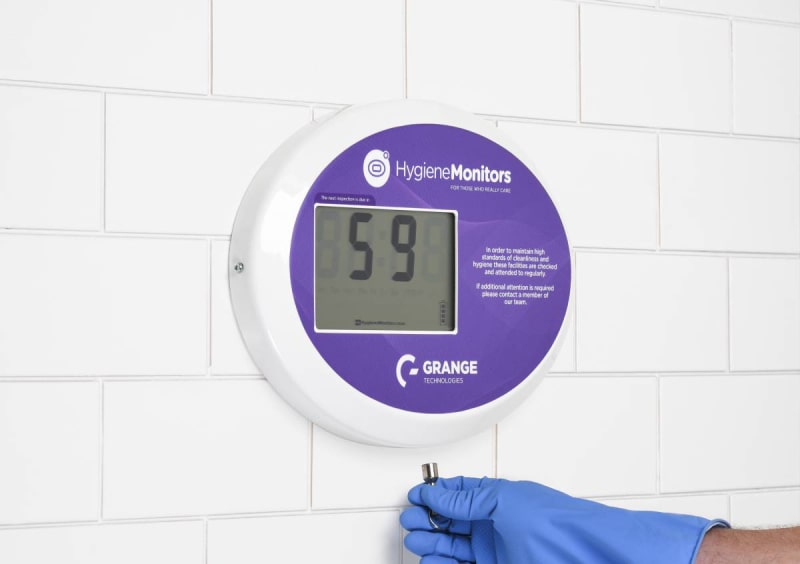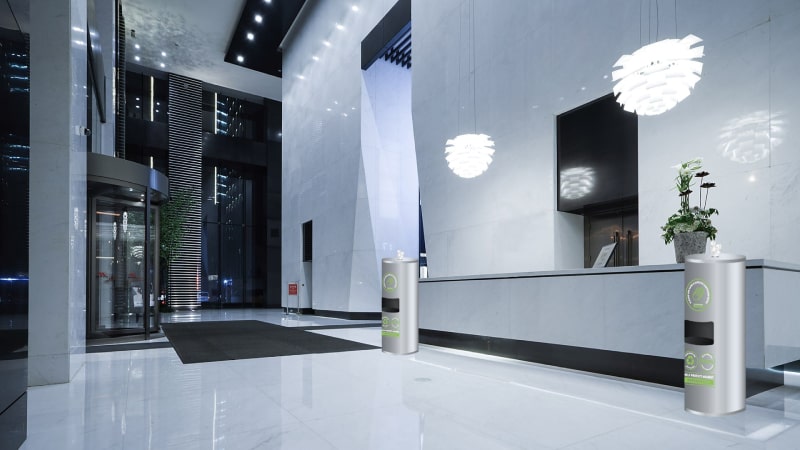While the past year has been the worst on record for many UK business people, for Jonathan Bradford, who has spent nearly 30 years designing, innovating and manufacturing sanitising wipes and dispensers, 2020 was the year he finally became ‘an overnight success’.
His decades’ industry experience suddenly increased in value as the country went into lockdown in March 2020 and the phones and website for his business, The Hygiene Company, were suddenly inundated with enquiries.
“Luckily we were able to keep a fairly steady supply going, despite global shortages of product and shipping issues,” remembers Bradford, who started his business, back in the 90’s by filling a gap in the market for gym sanitisation. He eventually went on to invent The Wipepod, which was the first in a new generation of Wipes Dispensers for everyday use and has become the industry standard for dispensing wet wipes.
Long before the Covid-19 pandemic made sanitization commonplace, The Hygiene Company was educating clients on the importance of good hand and surface hygiene and innovating hygiene products, but in 2020 they were suddenly faced with a raft of new commercial shoppers keen to sanitise and retailers trying to keep their businesses open for safe trade.

Pictured: Jonathan Bradford (Founder of The Hygiene Company)
THE SANITISER GOLD RUSH
Like a gold rush, there was a surge to get supplies and quality was often compromised, but Jonathan and the team with their tried and tested ranges simply carried on with business as usual.
“Our established relationships with suppliers and manufacturers ensured that, even though shipping and raw materials dramatically increased, we were able to carry on developing new products for decontamination of environments using the latest technology, fighting cross contamination and making strict adherence to hand hygiene and compliance easy,” he says.
But it wasn’t long before he noticed that many retailers began slipping in hygiene with just a few bottles scattered around the entrance and use optional and consumers were left open to potential cross contamination.
“It’s not just the content of sanitiser that matters but who touched the bottle before you and when last the surface was disinfected. Self-service sanitisers, sprays and towels are all handled and shared by multiple people,” explains Jonathan.
SANITISING IS NOT JUST FOR PANDEMICS
“The vaccine will hopefully be the end of Covid-19, but it shouldn’t be the end of sanitising,” he says, “It should now be part of our daily routine and the responsibility of businesses and venues to offer the facilities ongoing. During the MRSA outbreak over a decade ago, it became clear that contagious viruses and germs could be drastically reduced by enforcing appropriate sanitising and it highlighted the need for greater public awareness of how these types of infections are transmitted, treated and prevented.”
As the public continue to debate the use of wipes versus sanitiser, The Hygiene Company covers all bases by offering dispensers that offer both in one stand ensuring all options covered.
Thanks to the business’s technological advances, wipes can now be stored and dispensed in offices, hospitals, within the home or wherever the need is greatest without fear of becoming unusable.
“The way I see it, it’s up to businesses like us to ensure that we maintain the supply and quality of cross contamination products but the public need to ensure that lessons have been learnt to ensure continued use.”




